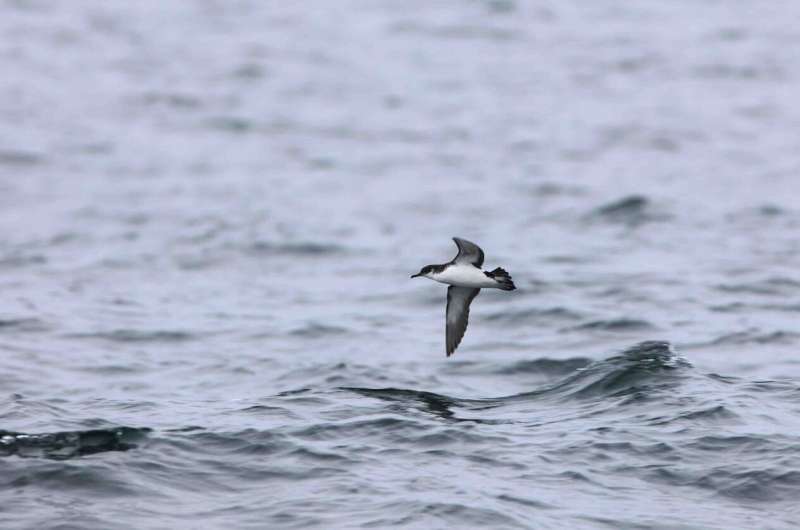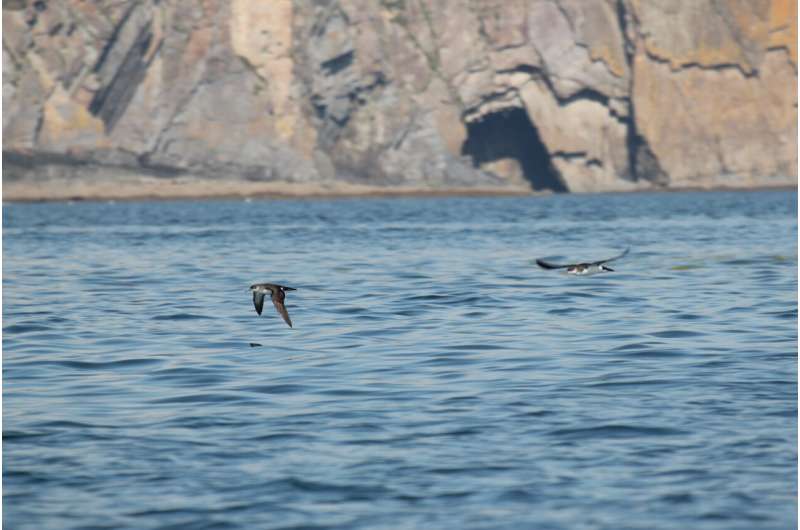Climate change could be making it harder for seabirds to feed, study finds

University College Cork (UCC) researchers have found that that cloudier waters, caused in part by climate change, is making it harder for seabirds to catch fish.
On Little Saltee, a small island off the coast of Ireland, the researchers attached tiny trackers to the feathers of Manx shearwaters. The aim of the study, published in Proceedings of the Royal Society B, was to understand how underwater visibility affects seabirds' ability to forage for fish and other prey. It is the first study to examine the impact of ocean clarity on seabirds' diving abilities.
Climate change is leading to the oceans becoming cloudier
Jamie Darby, a marine ecologist in the School of Biological Environmental and Earth Sciences and the MaREI center at UCC, and lead author of the study, says that "the chemical and physical properties of the planet's oceans are changing at an unnatural rate, bringing about challenges for marine life. One consequence of climate change is that large areas of our oceans are becoming cloudier."
Darby and the research team investigated the diving patterns of the black and white Manx shearwaters in relation to local environmental conditions like cloud cover and water clarity. Over 5000 different dives were recorded and using publicly available databases, and a range of relevant information about weather patterns and ocean conditions were amassed.

Struggling to find food
The study found that the birds dove deeper when sunlight could penetrate further underwater, suggesting that visibility is key to their ability to dive for food. As the planet warms and the ocean becomes cloudier this finding is important because it means that seabirds will have to overcome this challenge.
"Our findings support the idea that the birds needed sufficient sunlight to be able to forage at depth. While this study examined one particular seabird. The results can be extended to other animals. Many visually-dependent predators could find themselves struggling to find food as human activities continue to make the oceans murkier," stated Jamie Darby.
More information: J. Darby et al, Underwater visibility constrains the foraging behaviour of a diving pelagic seabird, Proceedings of the Royal Society B: Biological Sciences (2022). DOI: 10.1098/rspb.2022.0862
Journal information: Proceedings of the Royal Society B
Provided by University College Cork


















